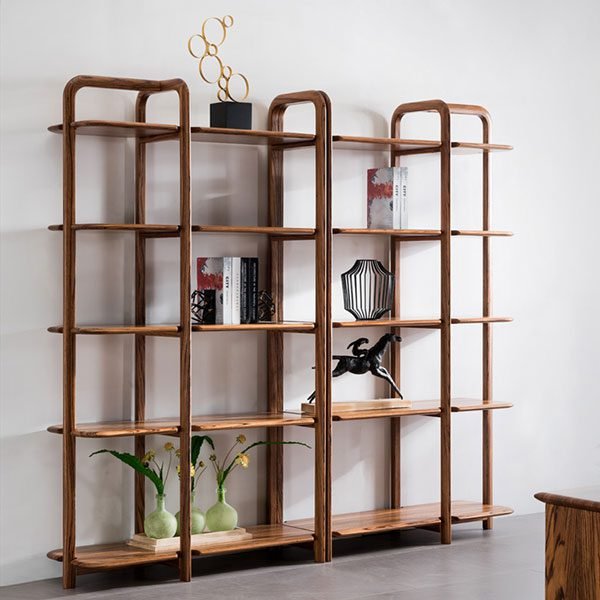“Ensuring comfort and durability, one sofa at a time.”
Benefits of Implementing Quality Control Measures in Sofa Manufacturing
Quality control is a crucial aspect of manufacturing, especially in industries where the end product is meant to be used by consumers. In the case of sofa manufacturing, ensuring that each piece meets certain standards of quality is essential for both the manufacturer and the customer. Implementing quality control measures in sofa manufacturing can have a number of benefits, ranging from improved customer satisfaction to increased efficiency in the production process.
One of the primary benefits of implementing quality control measures in sofa manufacturing is the ability to ensure that each piece meets certain standards of quality. By carefully inspecting each sofa before it leaves the factory, manufacturers can catch any defects or imperfections that may have occurred during the production process. This not only helps to prevent faulty products from reaching the customer, but also helps to maintain the reputation of the manufacturer as a producer of high-quality goods.
In addition to ensuring that each sofa meets certain standards of quality, implementing quality control measures can also help to improve customer satisfaction. When customers purchase a sofa, they expect it to be comfortable, durable, and aesthetically pleasing. By implementing quality control measures, manufacturers can ensure that each sofa meets these expectations, leading to increased customer satisfaction and loyalty.
Another benefit of implementing quality control measures in sofa manufacturing is increased efficiency in the production process. By catching defects early on in the production process, manufacturers can avoid costly rework or recalls, saving both time and money. Additionally, by identifying and addressing any issues that may arise during production, manufacturers can streamline the production process and improve overall efficiency.
Furthermore, implementing quality control measures can also help to reduce waste in the manufacturing process. By catching defects early on, manufacturers can avoid producing faulty products that may need to be discarded or reworked. This not only helps to reduce waste, but also helps to improve the overall sustainability of the manufacturing process.
Overall, the importance of quality control in sofa manufacturing cannot be overstated. By implementing quality control measures, manufacturers can ensure that each piece meets certain standards of quality, improve customer satisfaction, increase efficiency in the production process, and reduce waste. These benefits not only help to maintain the reputation of the manufacturer, but also help to ensure the long-term success of the business. In an industry where competition is fierce and customer expectations are high, implementing quality control measures is essential for staying ahead of the curve and delivering products that meet the needs and expectations of consumers.
Key Components of Quality Control in Sofa Production
Quality control is a crucial aspect of manufacturing, especially in industries where consumer safety and satisfaction are paramount. In the furniture industry, specifically in sofa production, quality control plays a significant role in ensuring that the final product meets the highest standards of durability, comfort, and aesthetics. As we look ahead to 2025, the importance of quality control in sofa manufacturing cannot be overstated.
One key component of quality control in sofa production is the selection of materials. High-quality materials are essential for producing durable and comfortable sofas that will stand the test of time. Manufacturers must carefully source materials such as wood, foam, fabric, and metal components to ensure that they meet the required standards for strength, durability, and safety. By conducting thorough quality checks on incoming materials, manufacturers can prevent defects and ensure that only the best materials are used in the production process.
Another crucial aspect of quality control in sofa manufacturing is the production process itself. From cutting and sewing fabric to assembling frames and adding finishing touches, every step of the production process must be closely monitored to ensure that the final product meets the desired quality standards. Manufacturers must implement strict quality control measures at each stage of production to identify and address any issues that may arise, such as misaligned seams, loose joints, or uneven cushioning.
In addition to monitoring the production process, manufacturers must also conduct thorough testing and inspection of finished sofas to ensure that they meet the required quality standards. This includes testing the strength and durability of frames, checking the comfort and support of cushions, and inspecting the overall appearance and finish of the sofa. By conducting rigorous testing and inspection procedures, manufacturers can identify any defects or issues before the sofas are shipped to customers, ensuring that only high-quality products are delivered.
Furthermore, quality control in sofa manufacturing also extends to packaging and shipping. Proper packaging is essential to protect sofas from damage during transit and ensure that they arrive at their destination in pristine condition. Manufacturers must use high-quality packaging materials and techniques to safeguard sofas from scratches, dents, and other forms of damage. Additionally, manufacturers must work closely with shipping partners to ensure that sofas are handled and transported with care to prevent any damage during transit.
Overall, quality control is a critical component of sofa manufacturing that directly impacts the quality, safety, and satisfaction of customers. By implementing strict quality control measures throughout the production process, manufacturers can ensure that their sofas meet the highest standards of durability, comfort, and aesthetics. As we look ahead to 2025, the importance of quality control in sofa manufacturing will only continue to grow, as consumers increasingly demand high-quality products that are built to last. By prioritizing quality control in every aspect of production, manufacturers can differentiate themselves in the market and build a reputation for excellence in sofa manufacturing.
Future Trends and Innovations in Quality Control for Sofa Manufacturing
Quality control is a crucial aspect of manufacturing, ensuring that products meet the required standards and specifications. In the sofa manufacturing industry, quality control plays a significant role in ensuring that customers receive high-quality products that meet their expectations. As we look towards the future of sofa manufacturing in 2025, it is essential to consider the importance of quality control in maintaining and improving product quality.
One of the key reasons why quality control is essential in sofa manufacturing is to ensure consistency in product quality. By implementing quality control measures, manufacturers can identify and address any issues or defects in the production process, ensuring that each sofa meets the required standards. This consistency is crucial in maintaining customer satisfaction and loyalty, as customers expect to receive products that are of a consistent quality.
In addition to maintaining consistency, quality control also helps manufacturers identify areas for improvement in the production process. By monitoring and analyzing data from quality control measures, manufacturers can identify trends and patterns that may indicate areas where improvements can be made. This continuous improvement process is essential in ensuring that manufacturers stay competitive in the market and continue to meet the evolving needs and expectations of customers.
Furthermore, quality control is essential in ensuring that products meet safety and regulatory standards. In the sofa manufacturing industry, there are specific safety standards and regulations that manufacturers must adhere to in order to ensure the safety of consumers. By implementing quality control measures, manufacturers can ensure that their products meet these standards and regulations, reducing the risk of product recalls or legal issues.
As we look towards the future of sofa manufacturing in 2025, it is clear that quality control will play an even more significant role in ensuring product quality. With advancements in technology and automation, manufacturers will have access to new tools and techniques for monitoring and improving product quality. For example, the use of artificial intelligence and machine learning algorithms can help manufacturers analyze data more efficiently and identify potential issues in the production process.
Additionally, the use of sensors and IoT devices can provide real-time data on product quality, allowing manufacturers to make immediate adjustments to the production process. These advancements in technology will enable manufacturers to improve product quality, reduce waste, and increase efficiency in the production process.
In conclusion, quality control is a critical aspect of sofa manufacturing that ensures product quality, consistency, and safety. As we look towards the future of sofa manufacturing in 2025, it is essential for manufacturers to prioritize quality control and invest in new technologies and techniques to improve product quality. By implementing quality control measures, manufacturers can maintain customer satisfaction, stay competitive in the market, and meet safety and regulatory standards. Quality control will continue to play a crucial role in the future of sofa manufacturing, driving innovation and improvement in product quality.
Conclusion
Quality control is essential in sofa manufacturing to ensure that products meet high standards and customer expectations. By implementing rigorous quality control measures, manufacturers can improve product quality, reduce defects, and enhance customer satisfaction. In conclusion, the importance of quality control in sofa manufacturing in 2025 cannot be overstated, as it plays a crucial role in maintaining the reputation and competitiveness of manufacturers in the market.



